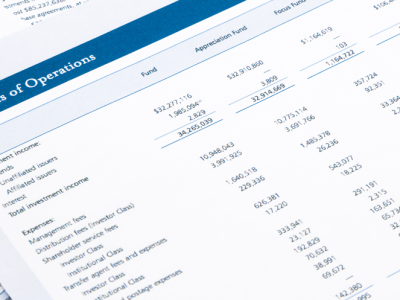Sy Syms Online Blog
Explore how utilizing AI for market research can sharpen strategy, save time, and enhance an organization's analytical process.
If you’re considering an advanced degree to help progress your business career, you’ve probably heard about some of the quantifiable benefits of an MBA. What is discussed far less often, however, are some of the more subtle benefits of an MBA.
Explore the key differences between a CPA and an MBA. From salary to career flexibility, determine which credential will best advance your career.
With accurate financial statements, you can assess your company’s financial position and make strategic decisions to boost its performance. As a CFO, business owner, or management-level employee, you may use the statement of operations to compare your business with industry standards and identify where you can cut your operating costs.
MBA
A financial statement in accounting is a written record that shows the monetary activities and performance of a company's financial position. Read on to learn about the different types of audited financial statements, their purposes and how they are used—whether by organizations, governments or other stakeholders.
To understand where a company is going, you have to understand where it came from and its current state. If someone needs to determine the profitability and growth potential of a business, the first place to begin is with its financial documents. Perhaps one of the most important of those documents, an income statement shows all of a company’s revenues and expenses and is a key indicator of what’s to come.
MBA
Essential financial statements convey financial information about a company, including its business activities and performance. Read on to learn the four basic financial statements that every business needs to drive success.
Whether you aspire to be an executive, an entrepreneur or an investor, it’s important to understand the basics of a financial statement. Financial statements offer crucial insights into a company’s financial health and serve as the basis for company-wide decisions.
Discover the key components, strategies and optimization techniques that make supply chains efficient.
For a company to be successful long term, sustainability and social responsibility are no longer a luxury; they’re necessary for attracting both customers and employees. Following sustainable business practices allows a company to better position itself while also contributing to society as a whole.
A digital marketing strategy uses online channels to establish a presence and reach a target market. These channels can include social media networks, websites, paid advertisements and organic traffic from search engine optimization strategies.
Corporate scandals can damage a company’s bottom line and, in severe cases, put it out of business completely. To help prevent against the fallouts that usually follow a scandal, business ethics and corporate governance establish organizational values and set standards for decisions and behaviors.
There are endless opportunities for how to use data analytics in your organization. This article explores techniques, tools and best practices to transform data into meaningful insights.
Workplace conflict can be destructive and stressful if not managed properly. If you find yourself struggling with how to resolve disputes at work, this article explores effective strategies to strengthen conflict resolution and negotiation skills.
Understanding the subtleties of cross-cultural communication, as well as identifying and overcoming your unconscious biases, will make it easier for you to work for a global business and successfully build relationships with business partners from other countries.
Innovation is the process of developing creative and revolutionary solutions to business challenges and customer needs. The most innovative companies share eight characteristics and behaviors. Learn more.
Any successful business will use numerous approaches and skills to adapt to these changes and foster a positive work environment. This article explores business strategies that you can implement to help your organization overcome challenges and foster a strong culture.
Today, new fintech tools such as peer-to-peer payment apps and robo-advisors allow consumers to manage their finances independently and digitally. Let’s take a closer look at some of the biggest innovations in fintech and how they will change business for the better in the future.
According to WFH Research, the percentage of workers with hybrid or remote work arrangements increased from 4.7% to 27.2% between 2019 and 2023.1 Remote teams enjoy many advantages, but it also poses unique challenges for leaders and managers.
As consumers look for businesses' actions to align with evolving social ethics, corporate social responsibility (CSR) has emerged as a pivotal force in shaping the future of the business landscape.




















